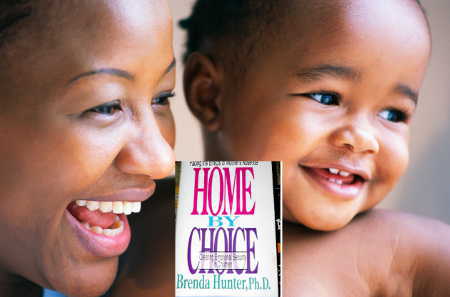human traffickingFeatures
Why mothers deserve the highest medal
Love from mom lasts forever
The spread of the feminist movement in the world including in Uganda has created a new world in which women are raised to think more about growing their careers than raising children.
But more evidence has emerged and suggests that this ought not to be the case because of the psychological damage suffered by children as a result of the mother’s absence.
With the gruesome images of baby Arnella Kamanzi’s torture by a housemaid still fresh in the memories of many Ugandans, some of whom are as young as one month, in the care of other people.
In perhaps the most inspirational tales on Child Development, American psychologist Brenda Hunter reveals in her revolutionary 2001 book titled Home by Choice, that a growing number of American women are giving up their enviable careers to focus on raising their children, at least in the early years of children’s lives.
Hunter challenges the grand notion espoused by many ‘elite’ women these days that Home is some form of prison.
Drawing from her own brutal experience of maternal deprivation as well as from numerous examples of women, children and experts on the subject, Hunter argues that a mother’s absence negatively affects a child’s sense of security, self worth while also damaging their trust and subsequently their ability to create lasting relationships.
One of her compelling examples who ditched enviable careers to stay home with kids is Helen Jackson. Jackson had been lined up to become the first female black astronaut in America’s history but she gave up her record-setting opportunity to return home to nurture her children.
“My oldest son was having trouble in school,” Hunter quotes Jackson. “He was severely withdrawn and depressed. He had failed sixth grade. My son was fast becoming a statistic.” Jackson was traumatised by her children’s emotional disorientation that one day she decided to quit her job at NASA to become a full time mother.
Hunter writes that unlike many parents who blame their children when they falter, Jackson took the responsibility for her son’s failure.
“After all, I went back to work when Malik was three weeks old. It really tore me up,” Jackson narrated that her decision to return home paid off handsomely. Not only did her children’s academic performance greatly improve, but their mood too lit up as they began to develop socially favourable behaviours including a sense of leadership.
A mother’s physical and emotional presence not only nourishes the babies emotional appetite, according to Hunter, it creates the foundation for his personality that lasts throughout his lifetime, argues Hunter:
“To be fully human, a child needs to be intensely loved and cared for by someone who won’t pack up and leave at five o’clock. That someone is the Child’s mother.” and Hunter adds: If a child falters in emotional development, he falters in life.”
Citing fellow psychologist John Bowlby, who came before her, Hunter argues that a baby forms an emotional bond with his mother right from birth which creates a ‘foundation stone of personality’ and self worth. Bowlby equated a baby’s longing for his mother to hunger for food.
When children feel they are unloved, they get a sense of unworthiness. “How can I expect others to love me if my parents don’t,”she writes.
During an interview she gave she gave prior to the book’s publication, Jim a cameraman who was recording the interview felt as though Hunter was speaking about him, she recalls in her book.
“I never though either parent truly loved me, and I’ve always struggled with low self-esteem,” Jim told Hunter after the interview. Not only did Jim have a low sense of self worth, he battled depression and suicidal thoughts through his adolescence. Later, Jim’s marriage too suffered from a lack of trust.
When is he safe for kindergarten?
A new school year is about to start and many parents, especially working parents are thinking about taking their kids to kindergarten, some of them simply because it’s the in thing. But Hunter has a warning for these types of parents who may be tempted to substitute mother care for other care or kindergarten in the name of learning and socialisation.
Hunter argues that separating a baby from her mother before he’s two years is detrimental because it interferes with the baby’s emotional development and erodes his sense of trust.
Hunter argues that children do not engage in peer play until they are about two years old.
Hunter not only launches a full-blown defence of stay home moms, but she also urges women to dig into their talents trove or start a home-based business that matches their education and skills level so as to find ways and means of sustaining their families or supplementing their husbands income.
“The mother who works from home has the opportunity to spend quality afternoons with her children,” writes Hunter. But many indeed don’t know how to start a home-based business.
With a few lead questions, Hunter strongly argues that women can translate skills into profit.
Some of the questions a mother may ask herself, according to Hunter, include;
What do I enjoy doing?
What do others identify as my skills and talents?
What are my hidden talents?
Do I have the personality characteristics needed for working at home?
Above all, women who work from home need to cultivate contacts with like-minded colleagues and link into networks with their peers as this helps to build emotional support and saves their time by avoiding to re-invent the wheel.
And when you think about it, what would society be without the sacrifices of our mothers? Especially those who stayed home and nurtured us. Mothers are the unsung heroines of our society.
As Hunter notes, the mother keeps her eye on the home front and her finger on the nation’s pulse.
Comments



















